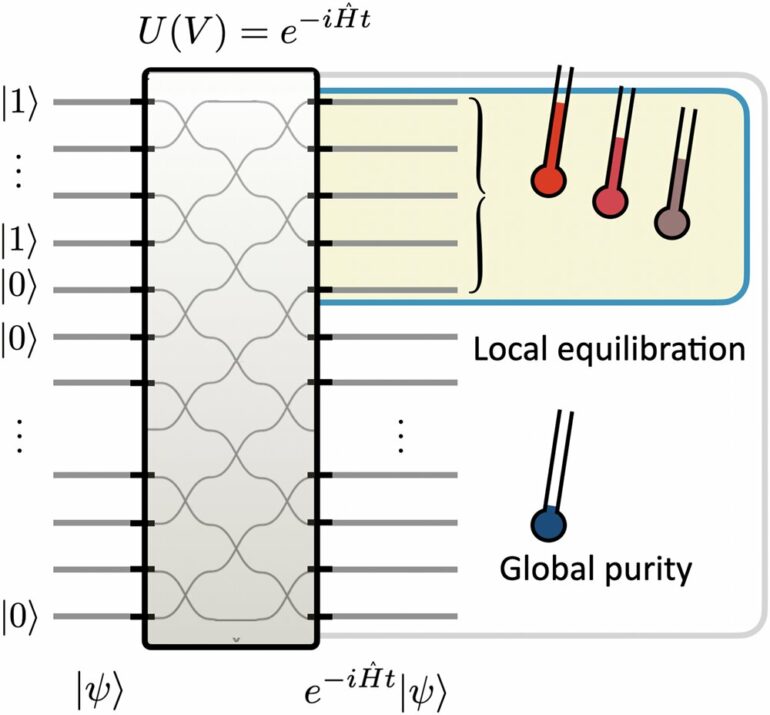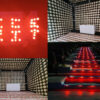It seems quantum mechanics and thermodynamics cannot be true simultaneously. In a new publication, UT researchers use photons in an optical chip to demonstrate how both theories can be true at the same time. They recently published their results in the journal Nature Communications.
In quantum mechanics, time can be reversed and information is always preserved. That is, one can always find the previous state of particles. How to reconcile this with the second law of thermodynamics has been a challenging paradox. There, time has a direction and information can also be lost. “Just think of two photographs that you put in the sun for too long, after a while you can no longer distinguish them,” explains author Jelmer Renema.
There was already a theoretical solution to this quantum puzzle and even an experiment with atoms, but now the UT researchers have also demonstrated it with photons. “Photons have the advantage that it is quite easy to reverse time with them,” explains Renema. In the experiment, the researchers used an optical chip with channels through which the photons could pass. At first, they could determine exactly how many photons there were in each channel, but after that, the photons shuffled positions.
Entanglement of subsystems
“When we looked at the individual channels, they obeyed the laws of thermodynamics and built up disorder. Based on measurements on one channel, we didn’t know how many photons were still in that channel, but the overall system was consistent with quantum mechanics,” says Renema. The various channels—also known as subsystems—were entangled. The missing information in one subsystem “disappears” to the other subsystem.
Dr. Jelmer Renema is assistant professor in the Adaptive Quantum Optics research group. His team included the research group of Prof. Dr. Jens Eisert of the Freie Universität Berlin, who played an important role in demonstrating the reversibility of the experiment. They recently published their article, titled “Quantum simulation of thermodynamics in an integrated quantum photonic processor,” in the journal Nature Communications.
More information:
F. H. B. Somhorst et al, Quantum simulation of thermodynamics in an integrated quantum photonic processor, Nature Communications (2023). DOI: 10.1038/s41467-023-38413-9
Provided by
University of Twente
Citation:
Photonics experiment resolves quantum paradox (2023, July 5)



